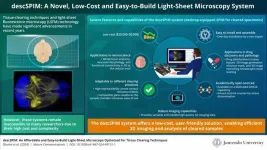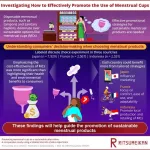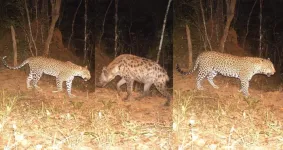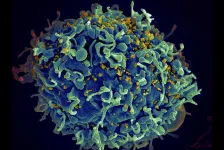(Press-News.org) Waltham — July 2, 2024 — American Indian/Alaska Native (AI/AN) women with breast cancer have consistently lower rates of breast reconstruction after mastectomy compared to non-Hispanic White women, reports a paper in the July issue of Plastic and Reconstructive Surgery®, the official medical journal of the American Society of Plastic Surgeons (ASPS). The journal is published in the Lippincott portfolio by Wolters Kluwer.
"Despite an upward trend in reconstruction, AI/AN women continue to be less likely to undergo breast reconstruction," comments Jane Hui, MD, MS, of University of Minnesota, Minneapolis. "While our findings point to some possible approaches to reducing this disparity, it will be essential to also determine Native women's opinions related to breast reconstruction."
Focus on factors affecting breast reconstruction in AI/AN women
Using data from the National Cancer Database, the researchers identified 1,980 AI/AN women and 414,036 non-Hispanic White women who underwent mastectomy for breast cancer between 2004 and 2017. Annual breast reconstruction rates were compared between groups, along with factors associated with decisions about reconstruction.
The two groups differed in some important characteristics. American Indian/Alaska Native women had higher rates of other medical diagnoses (comorbidity), 20% versus 12%; were more likely to have public health insurance, 49% versus 20%; and more likely to undergo single-breast (unilateral) mastectomy.
Over the 13-year study period, breast reconstruction increased in both groups: from 13% to 47% for AI/AN women and from 29% to 62% from non-Hispanic White women. After adjustment for other factors, AI/AN women remained nearly one-half less likely to undergo reconstruction.
Other factors associated with lower reconstruction rates included older age, earlier year of diagnosis, more advanced cancer, unilateral mastectomy, public insurance, and living in an area of lower educational attainment. Within the AI/AN group, reconstruction was more likely for younger women; those with more recent diagnosis, less-advanced cancer, and less comorbidity; and those living in urban areas or areas with a higher level of educational attainment.
Insights for addressing breast reconstruction disparity in Native women
Breast reconstruction after mastectomy has known benefits for some, including improved quality of life and body image. However, breast reconstruction is a personal decision – there is "no optimal proportion" of patients who should opt for reconstruction, Dr. Hui and colleagues note.
American Indian/Alaska Native women face a wide range of health disparities and barriers to medical care, including elevated rates of chronic health conditions, later diagnosis and higher mortality from breast cancer. "Complicating the healthcare environment in which AI/AN receive medical care is chronic underfunding of the Indian Health Service (IHS), implicit bias against AI/AN, and fraught relationships between physicians and AI/AN patients," the researchers write.
Their study offers insights into factors associated with the lower rate of breast reconstruction for AI/AN women with breast cancer. "Multidisciplinary efforts to improve care delivery to AI/AN women may continue to minimize disparities through earlier diagnosis and treatment," Dr. Hui and coauthors conclude. "Simultaneously, qualitative research into AI/AN perspectives on breast cancer care could improve shared decision-making between physicians and AI/AN patients, empowering AI/AN women to choose post-mastectomy reconstruction if they so desire."
Read Article: Disparities in post-mastectomy reconstruction use among American Indian and Alaska Native women
Wolters Kluwer provides trusted clinical technology and evidence-based solutions that engage clinicians, patients, researchers and students in effective decision-making and outcomes across healthcare. We support clinical effectiveness, learning and research, clinical surveillance and compliance, as well as data solutions. For more information about our solutions, visit https://www.wolterskluwer.com/en/health.
###
About Wolters Kluwer
Wolters Kluwer (EURONEXT: WKL) is a global leader in information, software solutions and services for professionals in healthcare; tax and accounting; financial and corporate compliance; legal and regulatory; corporate performance and ESG. We help our customers make critical decisions every day by providing expert solutions that combine deep domain knowledge with technology and services.
Wolters Kluwer reported 2023 annual revenues of €5.6 billion. The group serves customers in over 180 countries, maintains operations in over 40 countries, and employs approximately 21,400 people worldwide. The company is headquartered in Alphen aan den Rijn, the Netherlands.
For more information, visit www.wolterskluwer.com, follow us on LinkedIn, Facebook, YouTube and Instagram.
END
American Indian/Alaska Native patients less likely to undergo breast reconstruction
Disparity in reconstruction persists for AI/AN women, reports Plastic and Reconstructive Surgery®
2024-07-02
ELSE PRESS RELEASES FROM THIS DATE:
Prosocial influencers can promote societal cooperation
2024-07-02
A modeling study suggests that influential neighbors can be as effective as despotic leaders at promoting social cooperation. Prosocial behaviors can be difficult to sustain in large societies over the long term, as people give into the temptation to defect to strategies that prioritize the wellbeing of themselves and their immediate family. Stefani Crabtree and colleagues constructed a general theoretical framework to explore how cooperation could arise and be maintained in a large society. The authors explore three possible ...
SRF launches the SYNGAP1 missense account with Nordmoe family donation
2024-07-02
Mill Valley, CA – June 18, 2024 SRF has established a dedicated account to support research regarding SYNGAP1 missense variants. This account is being launched with a $10,000 donation from Dennis and Janet Nordmoe. This is a cause close to their hearts, as their granddaughter Olivia was diagnosed with SYNGAP1-Related Disorder (SRD) caused by a missense variant earlier this year.
Missense Research: Neglected to Date
“Most diagnosed SYNGAP1-Related Disorder (SRD) patients have protein truncating variants (PTV) as opposed to missense variants. Virtually all PTVs are assumed to have the ...
Design and development of a novel light sheet fluorescence microscope
2024-07-02
Three-dimensional (3D) imaging of organs and tissues is vital as it can provide important structural information at the cellular level. 3D imaging enables the accurate visualization of tissues and also helps in the identification of pathological conditions. However, achieving successful 3D imaging necessitates specific prerequisites, including the preparation of 'cleared' tissue samples—biological specimens rendered transparent by removing light-scattering components like lipids to ...
How to promote menstrual cups as an economic and sustainable option
2024-07-02
In recent decades, single-use plastics have pervaded modern societies, causing a significant surge in plastic pollution that exacts a heavy toll on our environment. Addressing this issue requires prioritizing sustainable alternatives to single-use plastics wherever feasible.
Disposable menstrual products are a notable contributor to plastic waste, with billions of sanitary napkins and tampons being discarded every year. Despite the availability of sustainable options like menstrual cups (MCs), consumer preference for single-use products ...
Spotted apex predator being pressured by spotted pack hunters – and it's our fault
2024-07-02
Who’s stronger? A solitary leopard or cackle of hyenas? And which is best at getting along with humans?
University of Copenhagen researchers closely studied this in a large East African natural area surrounded by rural settlements. The study demonstrates that the presence of humans has a direct impact on the competitive relationship between the two large predator species: leopards (Panthera pardus) – the iconic spotted feline and the spotted hyena (Crocuta crocuta) – a kleptoparasite and pack hunter known for its comical ...
True scale of carbon impact from long-distance travel revealed
2024-07-02
The reality of the climate impact of long-distance passenger travel has been revealed in new research from the University of Leeds.
Despite only accounting for less than 3% of all trips by UK residents, journeys of more than 50 miles (one way) are responsible for 70% of all passenger travel-related carbon emissions.
The disparity is even greater when international travel is singled-out: international journeys are only 0.4% of total trips but are responsible for 55% of emissions.
The new research, published today in the journal Nature Energy, also shows ...
Cutting-edge genomic test can improve care of children with cancer
2024-07-02
Whole genome sequencing has improved clinical care of some children with cancer in England by informing individual patient care.
New research from the Wellcome Sanger Institute, Cambridge University Hospitals NHS Trust, Great Ormond Street Hospital, and the University of Cambridge, supports the efforts to provide genome sequencing to all children with cancer and shows how it can improve the management of care in real-time, providing more benefits than all current tests combined.
The study, published today (2 July) in Nature Medicine, ...
Drugs that kill "zombie" cells may benefit some older women, but not all, Mayo Clinic study finds
2024-07-02
ROCHESTER, Minn. — Drugs that selectively kill senescent cells may benefit otherwise healthy older women but are not a "one-size-fits-all" remedy, Mayo Clinic researchers have found. Specifically, these drugs may only benefit people with a high number of senescent cells, according to findings publishing July 2 in Nature Medicine.
Senescent cells are malfunctioning cells in the body that lapse into a state of dormancy. These cells, also known as "zombie cells," can't divide but can drive chronic inflammation and tissue dysfunction linked to aging and chronic ...
New lab test to detect persistent HIV strains in Africa may aid search for cure
2024-07-02
New Lab Test to Detect Persistent HIV Strains in Africa May Aid Search for Cure
A multinational team led by Weill Cornell Medicine investigators developed a test that will help measure the persistence of HIV in people affected by viral strains found predominantly in Africa—a vital tool in the search for an HIV cure that will benefit patients around the world.
The study, published in Nature Communications on July 2, helps fill a major gap in human immunodeficiency virus (HIV) research. Most HIV studies have focused on strains circulating in Western countries, predominantly ...
RecombinHunt: predicting new pandemics through data analysis
2024-07-02
Milan, July 2, 2024 - Combating future pandemics through data analysis of recombinant virus genomes. A study published in the prestigious journal Nature Communication presents the promising results of RecombinHunt, a new data-driven method developed by the Department of Electronics, Information and Bioengineering of the Politecnico di Milano and the University of Milan, which can identify, with high accuracy and computational efficiency, recombinant SARS-CoV-2 genomes with one or two breakpoints.
Recombination, that is, the composition of two or more viral genomes to form a new genome, is an efficient molecular mechanism ...
LAST 30 PRESS RELEASES:
Research alert: Understanding substance use across the full spectrum of sexual identity
Pekingese, Shih Tzu and Staffordshire Bull Terrier among twelve dog breeds at risk of serious breathing condition
Selected dog breeds with most breathing trouble identified in new study
Interplay of class and gender may influence social judgments differently between cultures
Pollen counts can be predicted by machine learning models using meteorological data with more than 80% accuracy even a week ahead, for both grass and birch tree pollen, which could be key in effective
Rewriting our understanding of early hominin dispersal to Eurasia
Rising simultaneous wildfire risk compromises international firefighting efforts
Honey bee "dance floors" can be accurately located with a new method, mapping where in the hive forager bees perform waggle dances to signal the location of pollen and nectar for their nestmates
Exercise and nutritional drinks can reduce the need for care in dementia
Michelson Medical Research Foundation awards $750,000 to rising immunology leaders
SfN announces Early Career Policy Ambassadors Class of 2026
Spiritual practices strongly associated with reduced risk for hazardous alcohol and drug use
Novel vaccine protects against C. diff disease and recurrence
An “electrical” circadian clock balances growth between shoots and roots
Largest study of rare skin cancer in Mexican patients shows its more complex than previously thought
Colonists dredged away Sydney’s natural oyster reefs. Now science knows how best to restore them.
Joint and independent associations of gestational diabetes and depression with childhood obesity
Spirituality and harmful or hazardous alcohol and other drug use
New plastic material could solve energy storage challenge, researchers report
Mapping protein production in brain cells yields new insights for brain disease
Exposing a hidden anchor for HIV replication
Can Europe be climate-neutral by 2050? New monitor tracks the pace of the energy transition
Major heart attack study reveals ‘survival paradox’: Frail men at higher risk of death than women despite better treatment
Medicare patients get different stroke care depending on plan, analysis reveals
Polyploidy-induced senescence may drive aging, tissue repair, and cancer risk
Study shows that treating patients with lifestyle medicine may help reduce clinician burnout
Experimental and numerical framework for acoustic streaming prediction in mid-air phased arrays
Ancestral motif enables broad DNA binding by NIN, a master regulator of rhizobial symbiosis
Macrophage immune cells need constant reminders to retain memories of prior infections
Ultra-endurance running may accelerate aging and breakdown of red blood cells
[Press-News.org] American Indian/Alaska Native patients less likely to undergo breast reconstructionDisparity in reconstruction persists for AI/AN women, reports Plastic and Reconstructive Surgery®




